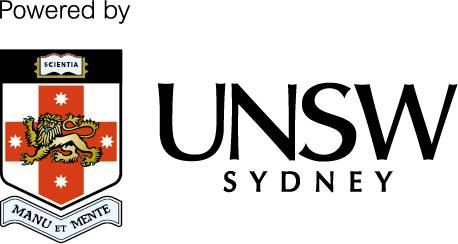The practice of freebirth is resurfacing in Australia due to a mistrust in the hospital system, pushing medical institutions to acknowledge that there must be a changed approach to the birthing experience.
A freebirth is defined as a birth without the aid of any medical practitioner, the woman relying solely on herself and chosen support such as a doula. It differs from a home birth where a registered midwife is present.
“There’s two reasons to freebirth," said midwife Gen Wood who studied a Bachelor of Midwifery at University of Technology, Sydney. "[Mothers] either feel traumatised and mistrusting of healthcare providers or it’s that they have full trust and faith in their own physiological ability, and their babies, making them feel safe.”
In late August, NSW Health Minister Ryan Park said the hospital system must do better: “We apologise to women who have not received the high standard of maternity care they should have".
' ... to be fully safe a woman must birth completely driven by pure animal instinct.'
The failure of the hospital system to make mothers comfortable was also highlighted in the podcast “The Great Birth Rebellion”. In one episode, ABC reporter Charlotte King was interviewed, saying that women’s "deep mistrust of the medical system and deep mistrust of institutions” had led to the rise in freebirths.
"Grand-doula" Natalie Meade, who has experienced both a hospital birth and a freebirth, vouches for the safety and beauty in freebirthing. She talks about how pivotal it is to know and connect to one’s body in the process of freebirthing, but reveals that acceptance plays a large role in the mental process.
“I personally believe that a birth is not a freebirth if there is anyone in the space with authority or power, or with 'expertise in birth support or birth'. That takes away the factors which make freebirth safe, because to be fully safe a woman must birth completely driven by pure animal instinct," Meade told Newsworthy.
In the "The Great Birth Rebellion" podcast, King highlighted the potential dangers of freebirth. While solid numbers on the number of freebirths are difficult to track, coroners have recorded seven freebirth baby deaths (just before, during or after labour) from 2022 to 2024 in South-East Queensland and Northern NSW. There were also two cases of confirmed catastrophic brain injuries. By comparison, the mortality rate for full-term babies in the hospital system is three deaths per 1000 babies.
With these potentially devastating outcomes, the decision to freebirth instead of home birth is sometimes questioned. Midwife Wood explained the decision may come down to a lack of private midwives who can aid in home births, especially in rural areas. Additionally, private midwives are expensive and not covered by the government.
Secondly, Wood said some women prefer to freebirth because the alternative would be trusting someone else to make pivotal decisions for them, which they believe may lead to unnecessary intervention. Women’s lack of support and confidence in hospital maternity care prompts the search for alternative birthing methods, such as freebirthing.
“I think the hospitals are doing what hospitals do which is provide a big churning system that works to see as many people as possible in the most cost-effective way possible … for women who are choosing freebirth, it’s that big hospital systems don’t meet their needs. And so, they’re looking for the alternative,” Wood said.
In June last year, the NSW Parliament launched an inquiry into birth trauma in response to rising dissatisfaction with the medical system. It received 4000 submissions from health professionals and birthing mothers. The committee heard testimony from women at four hearings, both regional and metropolitan, with participants invited to share their birth stories and the trauma they experienced.
The aim of the inquiry, which handed down its findings in May, was to investigate the prevalence, reasons, and solutions for birth trauma in NSW hospitals. In setting out the NSW Government's response to the inquiry, Minister Park confirmed it will support 42 of the 43 recommendations
Meade, who runs the Hunter Birth Education Centre, firmly believes that to freebirth requires power, confidence and deep knowledge. If a mother decides to freebirth, there can be no room for “naivety, fear, abandonment, desperation, and no doubtful supporters present”. It is a process meant to connect one to their body, child, and self and should have no interruptions by anyone to the natural process, no matter the possible outcome. Meade said free birthing was “unwatched, unwaited, and undisturbed”.
She acknowledges there will be times when freebirths, as with other births, do go wrong.
“I do also freebirth knowing that if an unsolvable, unfixable death does happen, (the death would have happened in hospital anyway), then I could cope with grieving. In fact, I can possibly grieve better, as I know it was all my choice and all my control, and I can accept it better than if it happens in hospital.”



Cultural ping pong: Dancing on the edge of two worlds